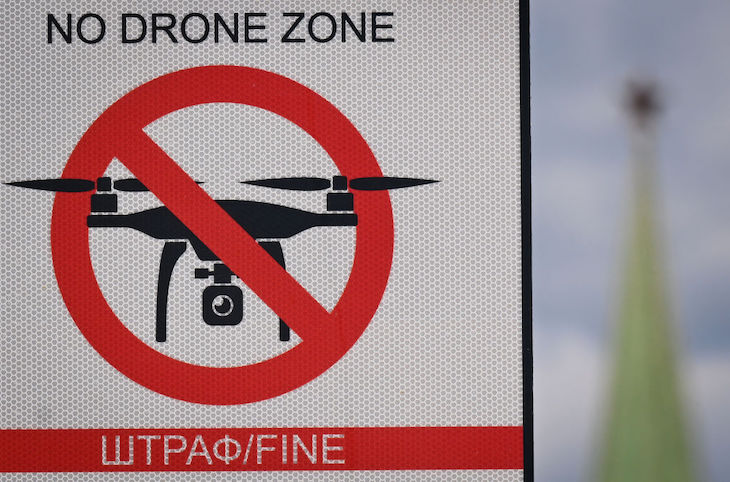Just as Moscow was beginning to recover from the shock of Evgeniy Prigozhin’s march on the capital, the city has, once again, been targeted by drones.
In the early hours of this morning, according to the Russian ministry of defence, five drones were intercepted before they reached the capital. Eyewitnesses reported seeing two of the drones flying in the direction of Moscow at a low altitude of approximately 200 metres. They came within touching distance of the city, getting as far as the New Moscow suburb to the south west.
According to Russia, four of the drones were shot down. Footage circulating on Russian social media allegedly filmed at the time the drones were taken out has caught the sound of a huge boom echoing around the tall apartment blocks of outer Moscow. The footage has not been independently verified.
Muscovites will be feeling jumpy
The independent bilingual newspaper the Moscow Times reports that two of the drones landed in an open field 2.5 miles from Moscow’s Vnukovo airport. As a result, the airport was closed for several hours and flights diverted to the city’s other airports.
The fifth drone, Russia said, was ‘suppressed by means of electronic warfare’ – jammed, perhaps – and downed in the neighbouring Odintsovo district. What Russia’s MoD failed to mention was where exactly this fifth drone landed and the damage it had caused.
Citing a source in the emergency services, the Kremlin news agency TASS reported that this fifth drone had in fact fallen at about 4 a.m. in the town of Kubinka. It had landed, they said, on the territory of a local military base.
More specific information was not given as to the military base’s location, but it is worth noting that Kubinka is home to the Kubinka aerodrome, where some of the Russian air force’s best performing squadrons are known to be stationed. A military garrison is also based there.
According to the anti-Kremlin Telegram channel Baza, the drone hit an ‘administrative building’ on the base without any casualties. Whether the airbase or military garrison were the drone’s intended target or coincidence is unclear – either way, whoever is responsible for the attack will chalk it up as a small win.
Predictably, the Russian authorities have pinned responsibility for the attack on Ukraine. Moscow’s mayor Sergei Sobyanin called it ‘an attempted attack by Ukrainian drones’; the Russian MoD branded the incident ‘an attempt by the Kyiv regime to carry out a terrorist attack’. As with the drone attacks that have shaken Russia, and Moscow in particular, over the past few months, whether this attack was carried out on Kyiv’s orders or by someone sympathetic to their cause is something we will be unlikely to know for certain until the war is over.
Nevertheless, loudly blaming Ukraine at every opportunity is not without risk for Putin’s regime. Less than two weeks after Prigozhin’s Wagner forces got to within 200 miles of the capital, Muscovites will be feeling jumpy. In the three drone incidents aimed at Moscow since the end of May, the New Moscow region has been consistently caught up in the crossfire – that the flight paths of these drones expand as more attacks take place would not be unlikely.
For Russians, it seems likely that the Kremlin’s rhetoric of victimhood will eventually begin to wear thin in the face of increasingly regular attacks. Putin has a fine line to tread.







Comments